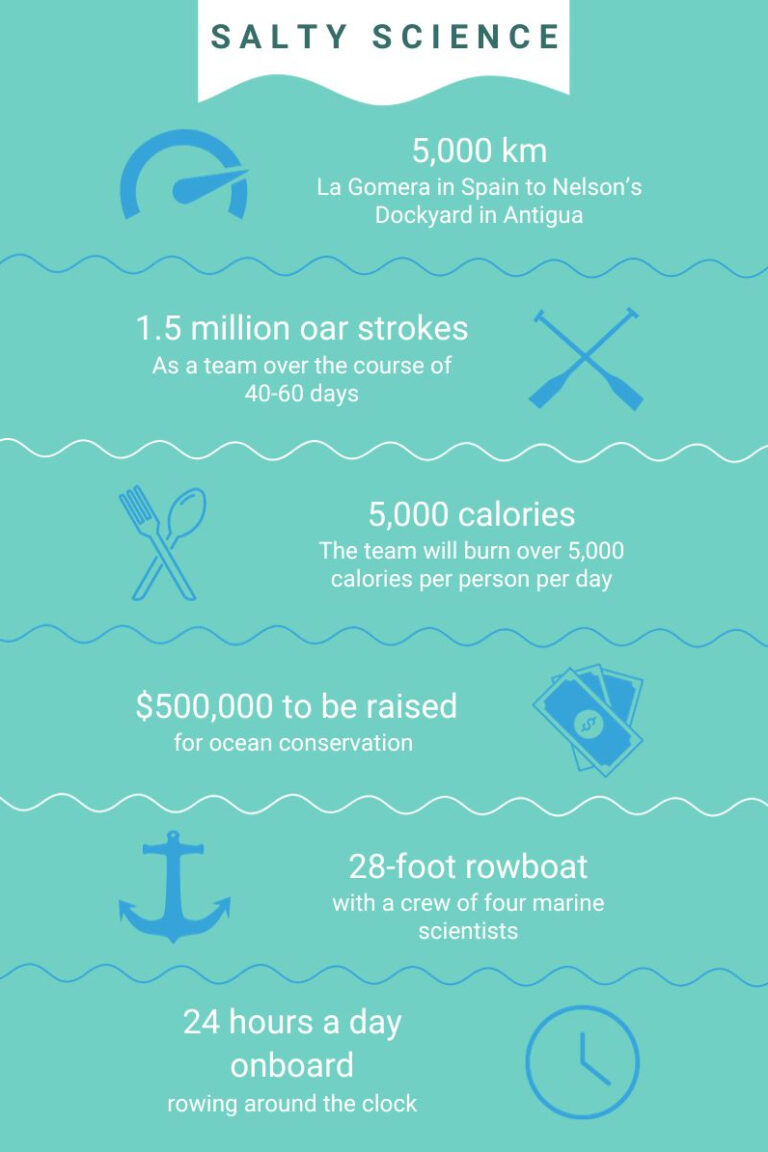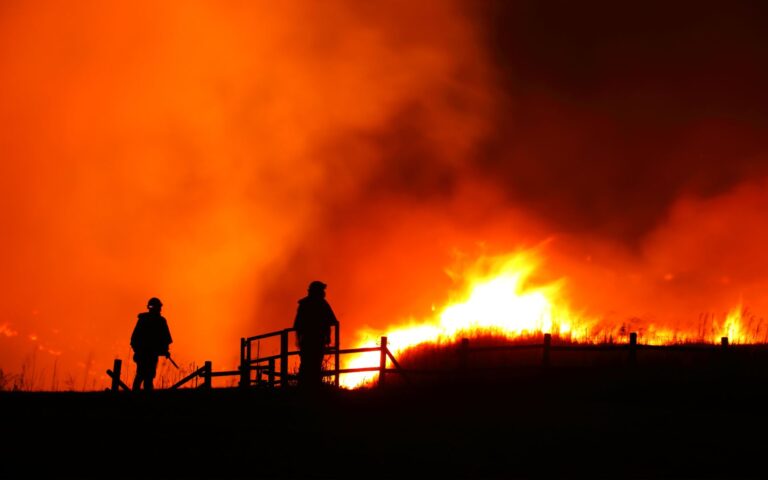All-woman crew of marine scientists rowing 5,000 km non-stop for ocean conservation
The four marine scientists will row across the Atlantic as part of the World’s Toughest Row - Atlantic 2023 from The Canary Islands to Antigua.
Four marine scientists are rowing 5,000 kilometres across the Atlantic to raise half a million dollars for ocean conservation.
The all-woman ‘Salty Science’ crew is taking part in the World’s Toughest Row – Atlantic 2023, where teams row without stopping and without support from San Sebastian de La Gomera in The Canary Islands to Nelson’s Dockyard in Antigua. They’ll set out on Dec. 13, weather dependent, and the voyage can take anywhere from 40 to 55 days depending on factors such as weather, the crew’s physical state and more.
They’ll take it in two-person shifts, sleeping two hours before taking the oars again for two hours, and spending 24 hours a day on the 28-foot rowboat. That means eating, sleeping and rowing in all weather—and they’ve got a bucket onboard for bathroom breaks.

“We’re feeling ready. While there are a lot of nerves and buildup, we had a good time this summer training every day in Florida for two months. We have been prepping for nearly three years at this point,” said Salty Science member Lauren Shea, a master’s student in the UBC Institute for the Oceans and Fisheries.
Her crewmates are another B.C. resident, Dr. Isabelle Côté, professor of marine biology at Simon Fraser University, as well as Dr. Côté’s former PhD student Dr. Chantale Bégin, now a professor at the University of South Florida, and Noelle Helder, Shea’s friend from undergraduate studies in Florida now working for the University of Alaska Fairbanks.
“We are four women, four marine biologists, three academic generations, and we are very aware that we are acting as role models,” said Dr. Côté. “We want girls who are interested in marine biology to know that anything is possible.”
The team aims to raise USD$500,000 for marine science and conservation through three organizations: GreenWave, focused on sustainable seafood production; Shellback Expeditions, which supports marine research, conservation and education in the eastern Caribbean; and the Bamfield Marine Science Centre, which will use the team’s funds to create a scholarship for students of underrepresented minorities to help train the next generation of marine conservationists.

The crew will take more than 1.5 million oar strokes, requiring they eat at least 4,000 calories a day. Their personal belongings are limited to one 40-litre dry bag not due to weight limitations, but space, as the boat is packed stem to stern with food. They’ll even be rowing on Christmas Day, when they’ll share small gifts, and when, the team has agreed, Christmas tunes will be allowed onboard.
It will be an arduous trip, aside from the sheer physical requirements. While the team are experienced on the water, with Shea having served as chief mate aboard a sailing school ship in Antigua, they will be self-reliant when at sea, carrying three satellite phones, emergency beacons, a medical kit and handheld radios. And then there’s the weather.
“The boat is self-righting, so if it capsizes it will roll back over. Every team prepares to capsize at some point and you can deploy various tools to slow yourself down and decrease this risk, but really it comes down to preparing for different emergency scenarios and working together when issues occur,” said Shea.
“It feels a lot more real now. It’s very exciting, and every time I spend time with my team I’m that much more excited, because they’re a pretty remarkable group of people.”
Follow Salty Science during the race via this tracking app and clicking “Add Race” and typing “World’s Toughest Row – Atlantic 2023”, or via their Instagram account. Find out more on their website.
Interview language(s): English (Shea, Côté, Bégin, Helder), French (Côté, Bégin)
Media images and B-roll: www.bit.ly/SaltyScience



